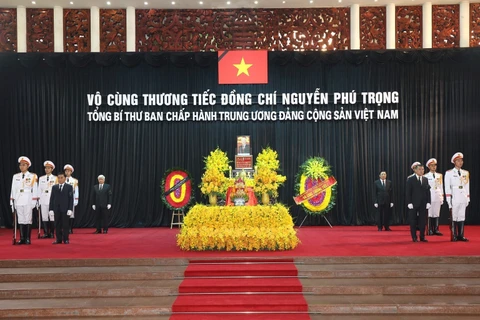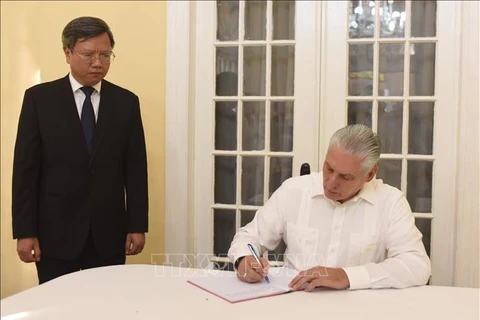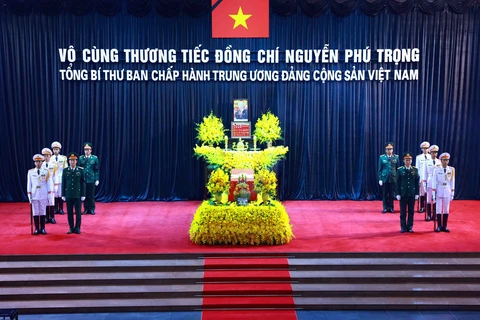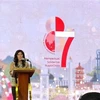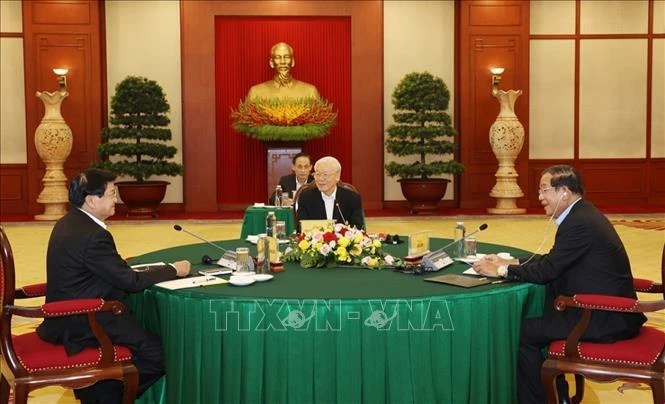
Hanoi (VNA) – Party General Secretary Nguyen Phu Trong had extremely important contributions to the nation building and development cause, with the highlight being the “bamboo diplomacy” approach and the anti-corruption fight which help create confidence and attract foreign investment, according to Uch Leang, a researcher at the Royal Academy of Cambodia (RAC).
Uch Leang, who is also Acting Director of the Department of Asian, African, and Middle-East Studies under the RAC International Relations Institute of Cambodia, and President of the Cambodian Alumni in Vietnam Association (CAVA), said that the year 1986, when Vietnam began implementing its market-oriented economic policy, known as Doi moi (Renewal), marked the beginning of continuous development of the country, which has transformed the economic landscape, raised the income of its people, and enhanced the country's position in the international area.
The expert emphasised the indispensable role of a strong and efficient leadership apparatus of the country throughout this process.
Promoting economic growth is extremely important, but for the economy to grow stably, it is necessary to have a strong foreign policy, as well as to control and handle domestic challenges well. That is an important issue and Vietnam has done this with a flexible foreign policy, Uch Leang stressed, adding that the bamboo diplomacy initiated by General Secretary Trong is a flexible foreign policy with a solid foundation, helping the country have a good relationship with every trend, and every country in the world.
The bamboo diplomacy is a solid strategy, affirming Vietnam's potential in the eyes of investors and major countries. Big companies of many countries also move production from others to Vietnam because they believe in the success of their investment activities, as well as in the administration under the leadership of General Secretary Trong. Besides, abundant human resources, enough to supply foreign companies and factories, is also an advantage, making foreign businesses confident in investing in Vietnam, the expert stated.
Another important point that helps create and strengthen trust in Vietnam, according to him, is the General Secretary's implementation and serious implementation of the corruption prevention and control work.
Stressing that the strict implementation of anti-corruption policies has truly contributed to Vietnam’s poverty reduction and continuous economic growth, the researcher said those are things that are not easy to do, requiring the General Secretary to sacrifice a lot to be able to carry out the anti-corruption work in the country.
According to him, thanks to its flexibility in foreign policy, Vietnam has been able to connect and establish smooth diplomatic relations with countries of all political regimes. Under the leadership of the General Secretary, the relationship between Cambodia and Vietnam continues to be nurtured through high-level visits and robust people-to-people exchanges. Therefore, the close and special bond between the two countries is consistently strengthened and upheld./.
